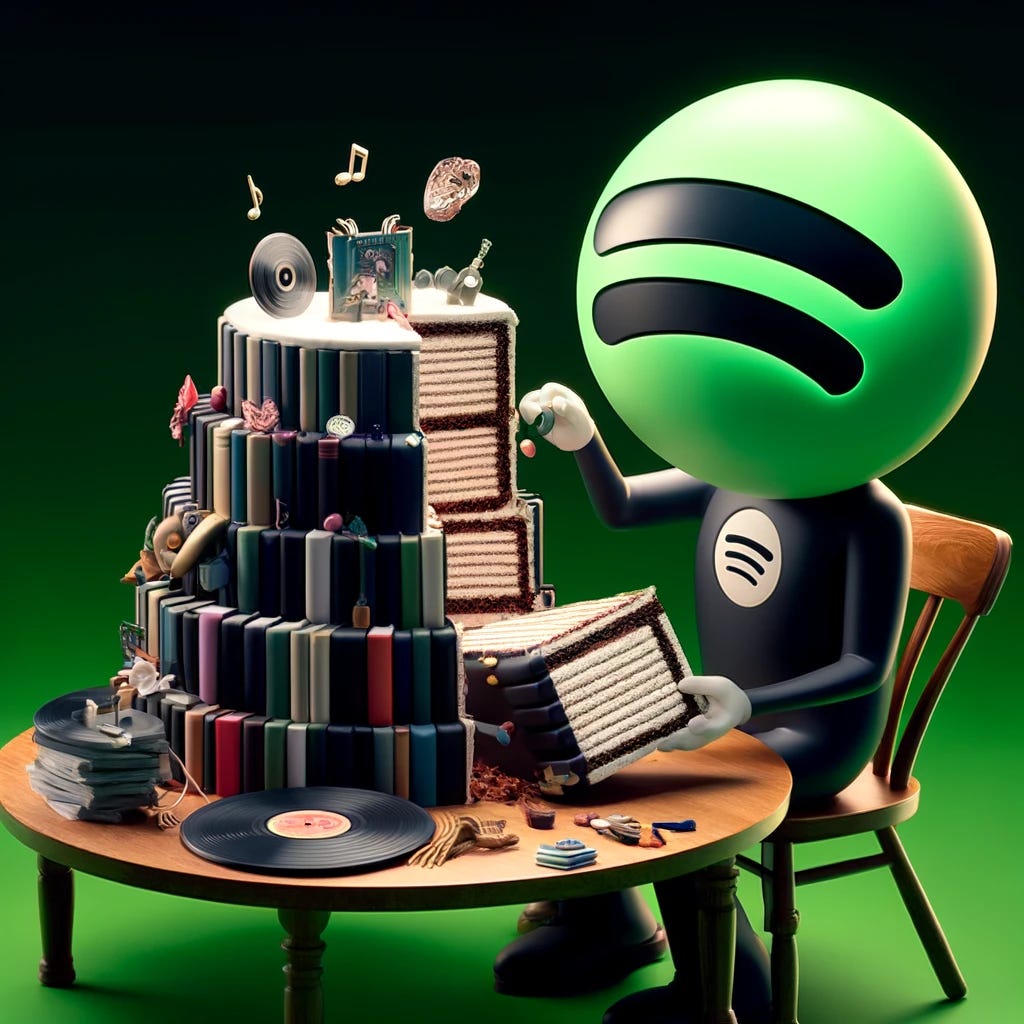Streaming Has Altered The Sound of Music – Now Its Poised To Do The Same For Books
Streaming has altered music, and now, with Spotify entering audiobooks, it is well-documented that many people – including our Coalition – have similar concerns about books.
It’s true that platforms like Spotify have made it easier for artists to reach listeners worldwide, bringing music to anyone with a smartphone or computer. However, it made an already difficult business nearly impossible to make a living in. Artists earn as little as $0.0033 per stream, meaning 1 million streams would earn you just over $3,000. This has made streaming income essentially irrelevant for up-and-coming and independent artists because only the biggest stars – most of them on major record labels – are receiving upwards of one million streams per month.
Outside of the financials, streaming has been blamed for fundamentally changing the sound of music. Most say these changes are for the worse. David Hesmondhalgh describes this shift as encouraging “bland, unchallenging music,” discouraging “music discovery and adventurousness,” and making songs shorter. Music consumption has become more passive, distracted, and functional.
There is an abundance of reasons to believe that these changes to the music industry predict a similar future for books. When Spotify launched its audiobook streaming product last fall, it granted 15 hours of free book listening to users of its existing premium subscription, making its large library of books appear “free” and devaluing authors’ work. Just recently, Spotify’s Head of UK Marketing confirmed that ads within audiobooks are the “dream.” And research has already suggested that the most popular (and thus, in streamers’ estimation, most important) audiobooks tend to be shorter and more straightforward.
All of this raises some pretty difficult questions for authors and book lovers, many of which Professor Matthew Rubery recently voiced in an op-ed for the Independent:
How will cash-strapped authors respond to the pressures and rewards of this new form of audience capture?
Will metrics changing how literature is written mean that listeners will lose out on the elaborate benefits to our brains provided by “deep reading”?
Will authors be incentivized to write ambient literary soundtracks rather than the next Catcher in the Rye?
Will the discovery of new voices be at the whim of an algorithm designed to manipulate our mood or maximize listening time?”
For now, we have many more questions than answers as streamers continue to iterate on their products. There is not yet any public data on how authors’ compensation from Spotify’s streaming product compares to other income streams. As always, we’ll keep an ear to the ground and hope that we can help some of you navigate these complexities.
What We’re Reading This Week:
Publishers Weekly, 2024 U.S. Book Show program
Bloomberg, Spotify Says 25% of US, UK, Australia Subscribers Try Audiobooks
The Bookseller, A quarter of Spotify Premium users listening to its audiobooks




